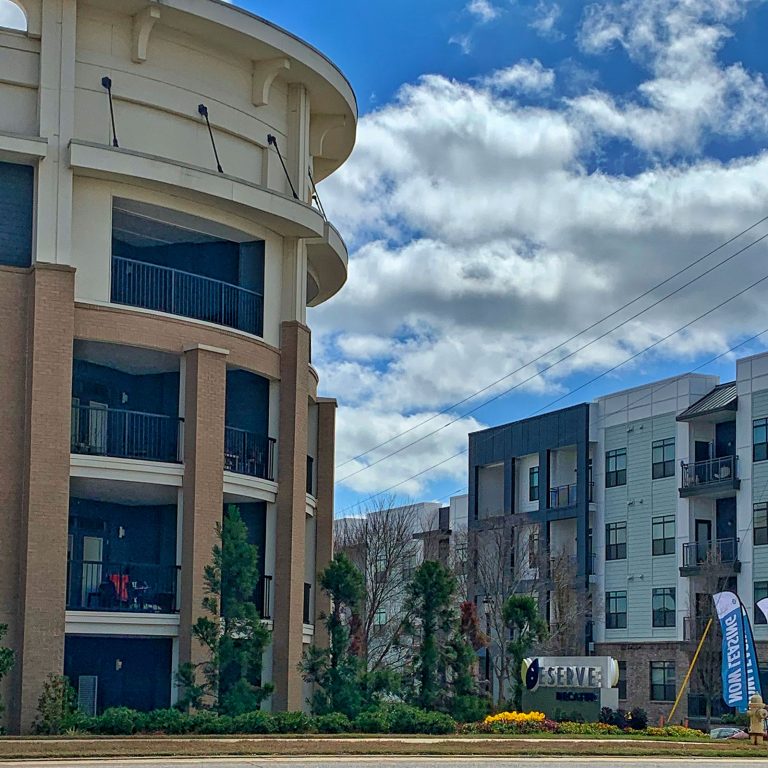In looking at the impact of the COVID-19 pandemic on the lives of Metro Atlantans, most schools and government operations in the area did not begin closings until around March 12th through March 16th. Many businesses and commercial operations followed soon after. Over the last week and a half, we have gradually seen more and more businesses shut down, leaving many people without paychecks for at least a temporary basis.
For residential landlords in Georgia, this timeline is important because these impacts occurred after the first week in March, meaning that by the time they occurred most tenants had already paid rent for the month. However, with the first week in April approaching, many landlords are already anticipating significant challenges in obtaining rent from their tenants. Moreover, some tenants are already approaching landlords about flexibility in paying rent. For residential landlords, now is the time to start thinking about a plan for how to handle this situation.
Communications – With general uncertainty growing, many tenants are looking for some reassurance from their landlord. Workers in some industries already know they will not be able to fully pay rent in April. They may be proactively seeking to advise landlords as to their financial situation. Most landlords we have spoken to want to be sympathetic and proactive, but they don’t want to give a blanket assurance that tenants don’t have to pay rent. This is particularly the case in large multi-family settings, where word can travel fast. Our advice is for landlords to tell tenants that everyone is trying to work through this difficult time, and that in general terms they are committed to working with tenants to address their financial needs as issues arise.
Deferral Agreements and Other Arrangements – If it is clear that a tenant will not be able to pay the full rent amount, then working on an accommodation now can help with planning and alleviate some uncertainty. Agreeing on a partial rent payment for April or some other period of time is an option, as is deferring April’s rent and providing that it be paid back over time for the remainder of the lease. We recommend that a rent deferral arrangement have a specified mechanism for the deferred rent to be paid back over several months. If a tenant proposes a lump sum payment of deferred rent in the future, keep in mind that it is very likely the tenant will not be able to make such a payment which could amount to double or triple their monthly rent. Landlords may consider conditioning rent accommodations or deferrals upon proof that a tenant has applied for unemployment benefits or other proof of financial hardship.
Whatever agreement is made, landlords need to make sure that the agreement is put into a written document signed by the tenant and the landlord. Any agreement that deviates from the terms of the lease is a lease mediation. Most leases will require any modification to be in writing and signed by the landlord and tenant to be enforceable. With leasing offices closed and the need for limited personal contact, landlords should keep in mind that agreements can be signed in counterparts – where the landlord signs one copy of the agreement and the tenant signs another copy. The combined copies form the fully signed agreement. Landlords should consider offering to do this remotely, even if the tenant has to sign the agreement, take a photo of it with their phone, and send that image to the landlord.
Evictions – In working with tenants, residential landlords should know that currently their ability to evict a tenant who does not pay rent is severely restricted. All magistrate courts in the Metro Atlanta area are closed except for essential functions. While dispossessory actions may be filed electronically in most courts to start an eviction, the paperwork will likely not be served on the tenant at this time, and the courts are not currently holding trials. Accordingly, the eviction process for tenants who do not pay rent for April will largely be on hold. Moreover, once the magistrate courts resume operations, we expect there will be a significant backlog and delays in processing evictions. For landlords, this provides some extra incentive to work with tenants and to make accommodations until most people’s work situations become more normal.
Cash Flow Concerns – Despite planning efforts, many landlords will find themselves with reduced rent revenue. Depending on the landlord’s liabilities, this can create a significant cash flow issue. Some landlords with debt obligations on their rental properties are already talking with their lenders about deferrals on loan payments or other accommodations. If a landlord can work with its lender to alleviate some pressure from the landlord’s monthly loan payments, that can greatly improve cash flow issues and give the landlord more freedom in working with tenants.
April’s rent deadline is rapidly approaching, and residential landlords need to start planning now for challenges in getting rent payments from their tenants. In facing this difficult situation, Landlords owe it to themselves to consider all the options out there. At Williams Teusink, LLC we are already working with our landlord clients on drafting lease modifications, seeking loan deferrals, and exploring financing options through state and federal programs. If you need help as a landlord navigating these uncharted waters, please contact us today at 404-373-9590.


